Nvidia kicked off the tech day with Ada Lovelace architecture improvements, focusing on what is described as "a quantum leap in ray tracing performance", and DLSS 3, which bring impressive performance improvements and innovations on both the software and hardware side.
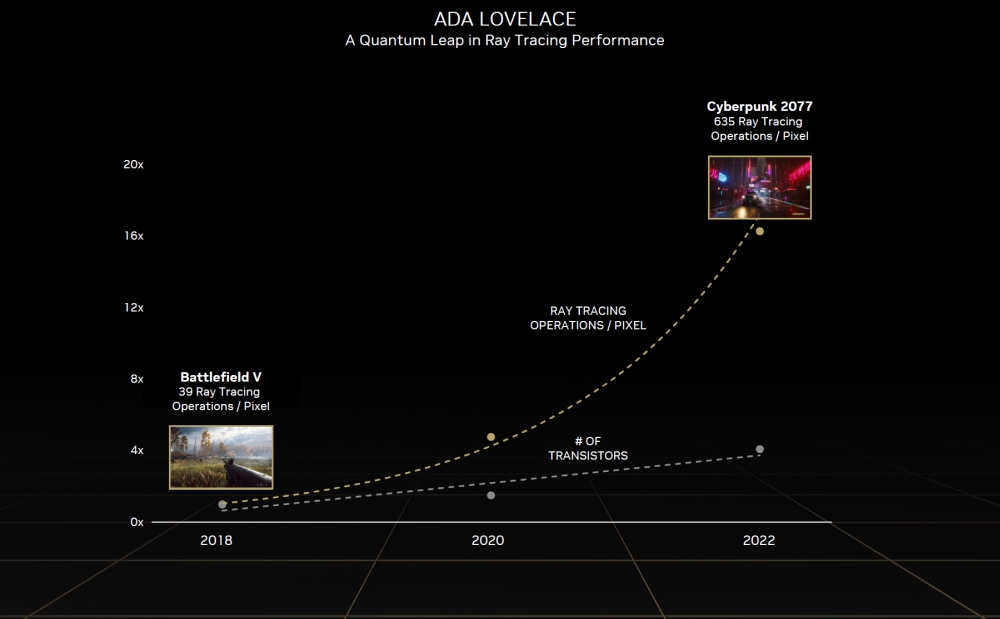

The RTX innovations, as detailed by Nvidia, include shader execution reordering, displaced micro-meshes, opacity micro-masks, FP8 inferencing, optical flow accelerator, and, of course, DLSS 3, all of which, together with the new Streaming Multiprocessor, new RT cores, and new Tensor cores, add up to significant performance improvements, around 2x-4x.
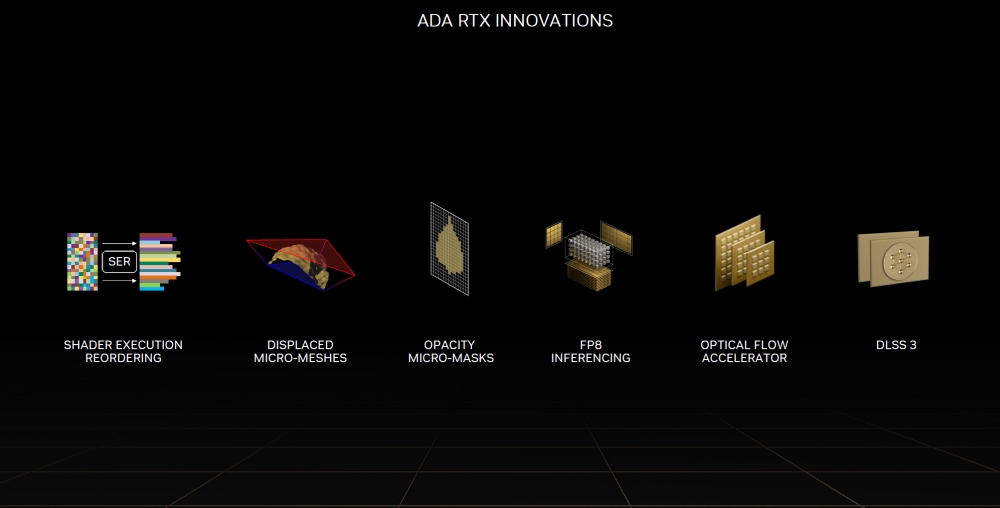
In addition, and despite the higher performance, Nvidia says that the Ada Lovelace is 2x power efficient, at least compared to Ampere architecture.
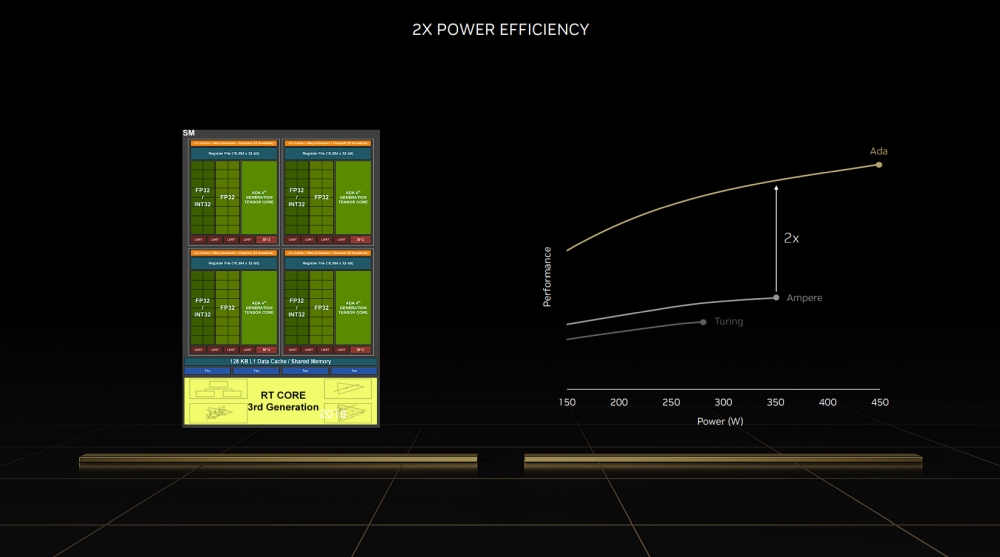
The AD102 GPU comes with 12 GPCs
Nvidia also shed a bit more light on the RTX 40-series, Founders Edition cards, which we will cover in a separate article, and the actual GPUs that will be used by the SKUs, confirming some earlier suspicions and rumors.
The fully enabled AD102 GPU, the one that the RTX 4090 is based on, packs 12 GPCs, 144 SMs, and 72 TPCs, for a total of 18,432 CUDA cores. It also packs 144 3rd Gen RT cores and 576 4th Gen Tensor cores. It uses a 384-bit memory interface, supports up to 24GB of GDDR6X memory (48GB of GDDR6+ECC on the professional side), and features two Nvidia Encoders (NVENC).
As detailed earlier, it is built on TSMC's 4N manufacturing process and packs 76 billion transistors.
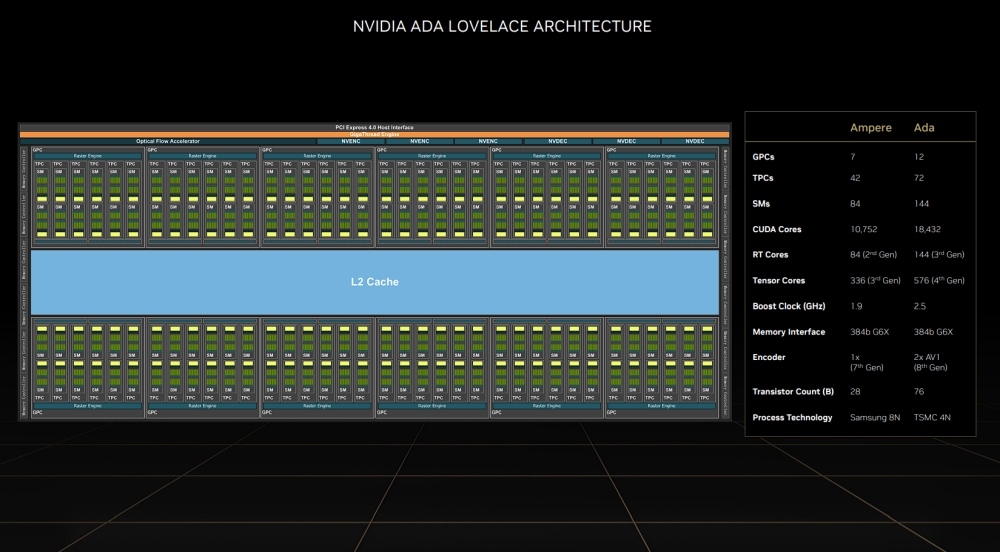
As you probably already know, the RTX 4090, based on AD102, features 16,384 CUDA cores, 512 Tensor cores, and 128 RT cores, suggesting that the RTX 4090 Ti could be possible in the future.
The RTX 4080 16GB SKU is based on AD103 GPU and features 9,728 CUDA cores, as well as come with 16GB of 23Gbps GDDR6X memory on a 256-bit memory interface, peaking at 736GB/s of memory bandwidth.
The RTX 4080 12GB SKU, on the other hand, is based on AD104 GPU, packing 7,680 CUDA cores and packing 12GB of 21Gbps GDDR6X memory on a 192-bit, leaving it with 504GB/s of memory bandwidth.

It was quite a surprise that Nvidia decided to use such a naming scheme for its RTX 40-series, and, apparently, this was due to the performance level of the RTX 4080 12GB, which ends up as fast as the RTX 3090 Ti (and even 2x higher performance in future games with DLSS 3), earning the xx80 name and leaving room for some other GPU variation to fill the xx70 lineup.
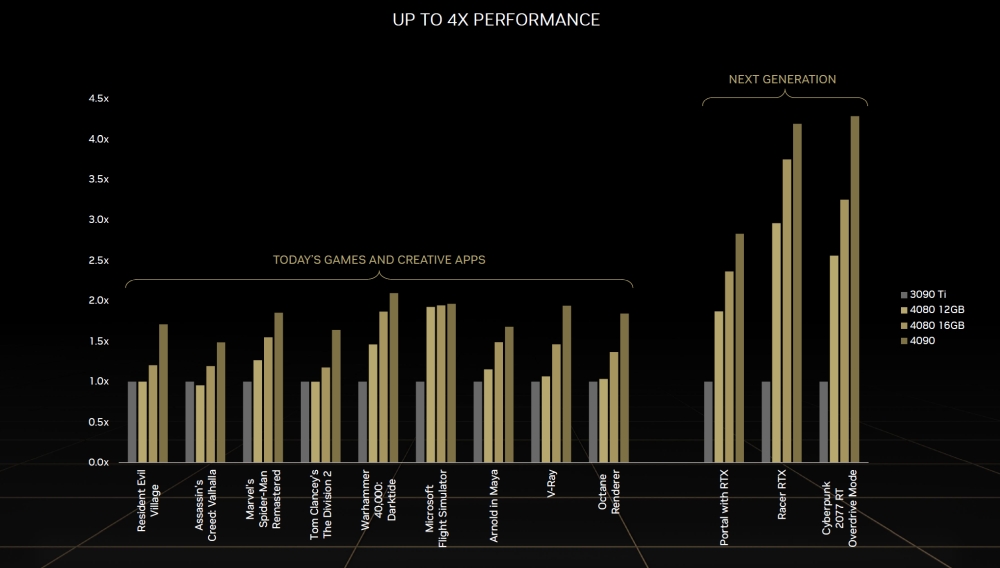
The flagship Geforce RTX 4090 will be available as of October 12th, starting at $1,599. The RTX 4080 versions will be available in November, with the price set at $1,199 for the 16GB and $899 for the 12GB version.




